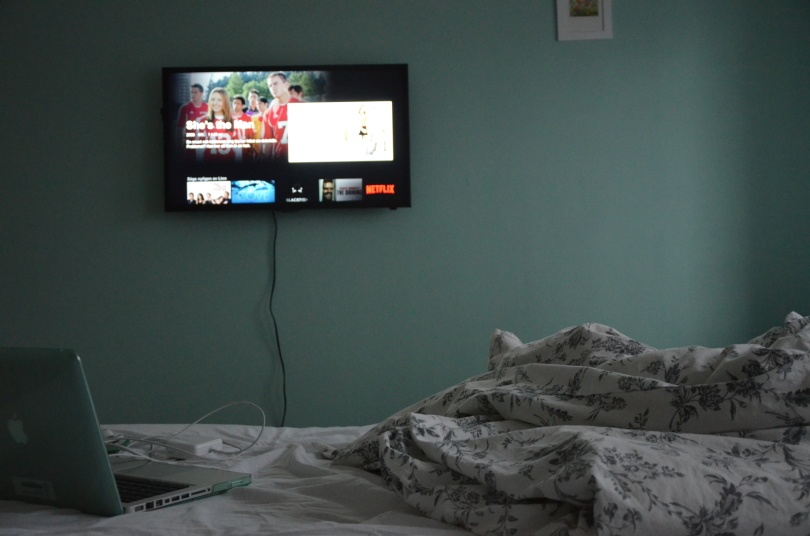School Is A Business: Part 1
After class I met up with a fellow classmate in order to discuss a project we had to do together. After we got the basis of what we were going to do for our project, we got to talking. Little did I know our conversation would stay with me the rest of the day. Like most college kids who get together for the first time, our discussion fell on the topic of school. It started out with as you expected, the complaining of work load, lack of time, funds, the list goes on. After everything my companion and I would complain about he (let’s call him Eric) would say that’s the business of school. At first I thought the phrase was some kind of weird thing he hoped would catch on. Every time he said it I glanced at him thinking “Stop trying to make fetch happen, it’s never going to happen.” After the fourth time I just decided to ask him what he meant by saying “That’s the business of school.”
He chuckled like I’d told him a joke and leaned back in his seat. “Because school is no longer school,” he smiled oddly. ” It is not a place to come for higher education, to help you excel in life. It’s simply a business now, here to make money.” When I continued to stare at him with complete and utter confusion, he laughed again. What does he mean it’s not a place of higher learning? Was I not getting an education? Was I not going to get a degree at the end of it all saying I completed school? Did I not go to class and take notes and test on a subject matter to learn? What on earth was he talking about? Seeing the puzzle look on my face, Eric decided to explain himself. He broke down what seemed like this prepared speech about schools today becoming a business instead of a place of education.
Eric told me that schools, not just colleges but most schools now are all about getting more money. The objective of a school is no longer about educating the students as it should be, but making a profit using education as a tool. We were no longer students eager to learn and excel in life, we were now products. We’d become something for schools to put a price and value on to other consumers. We were not the only things to be turned into products, education had too become a product for consumers. He broke down his ideology of schools being a business into three categories, schools wanting you in and out, Students being products for other businesses, and education becoming a luxury instead of a liberty.
“Think about it,” Eric says fiddling with something in his hands. ” How much did it cost you to go to college in the 50’s?” he asked(Note:we go to school in California). I had to admit I had absolutely no idea, but what I soon learned shocked me. Nothing, it costed absolutely nothing to go to college just sixty years ago. Nowadays people go to college and they’re paying off student loans until they die. Not to mention that tuition, the price of books, and the price of residency goes up every year. He also pointed out that things like book cost and living conditions can cost you more than your actual classes. How did this happen? Getting a degree was literally priceless, and now it cost you bad credit, debts, and a large head ache long after you’ve gotten your degree. Education now had a price, making it a product to be sold. Education would be sold to people who need it in order to work and make a decent living. “How many jobs will hire you without a college degree?” Eric sighed. He was right, for the most part you can’t get paid above minimum wage unless you had a degree. A degree was now a necessity, making education a product, students the consumers, and colleges the businesses supplying them. “Let’s not even get on the irony of you not being able to get a job without a degree. Not being able to get a degree without education. Not being able to get education without money, which most people need a job for,” He scuffed rolling his eyes, and then proceeded to the topic at hand.
“Now if education is a product, that means it has a price,” Eric continued. “You and I both know that the price of a college education is extremely expensive.” I nodded in agreement thinking about how long it was going to take me to pay off my student loan. I briefly wondered how much time Eric had spent contemplating this idea, and how often he shared this theory. How many people actually thought about school in this way? “Now would you agree that not everyone can afford to pay for this product?” he asked me watching me closely.
Giving the analogy that education was a product, I responded “I suppose so,” thinking about how screwed most people would be if there wasn’t financial aid, student loans, or some kind of grant. I know I would be. College was indeed something the average person couldn’t afford to have without some kind of assistance of the government. It didn’t matter whether you went to community college, online college, a cal state, or university, they were are all tremendously expensive.
“Well that right there is why education has become a luxury and not a liberty,” he says glancing at his cell phone. I thought about mentioning that some people would argue that education has always been a luxury but decided against it. In a place like America where it’s against the law to not have your kids in some form of school system from the age of 5 to 18, I understood his point. Public schools did not cost each individual child, it was free and it was mandatory. From this perspective education was a liberty, and in the 50’s college was as well. It wasn’t something you had to pay for, it was something your country wanted for you because they knew it would make you a better person. Your good education meant a promising future for the country. That is until the country found something more promising than an educated citizen, a profit.
By this time I’m not sure I’m completely convinced of what Eric is trying to tell me. However his arguments were interesting, and some of the points he made were valid. I decided to hear him out and listen to his other points. What he continued to tell me was mind blowing.
To Be Continued…










Leave a Reply
Want to join the discussion?Feel free to contribute!